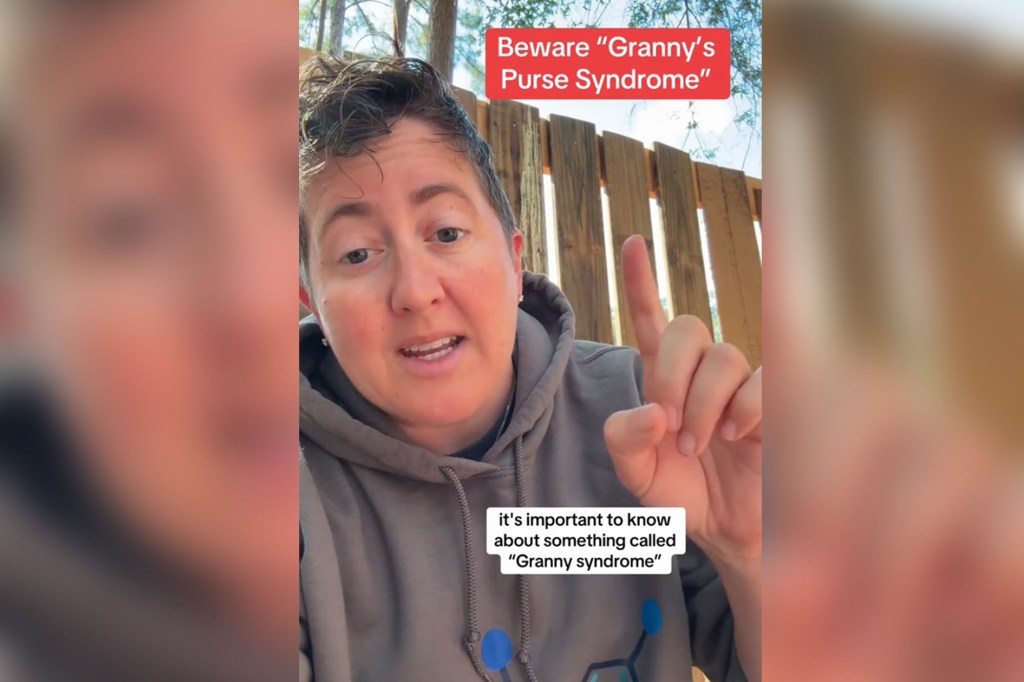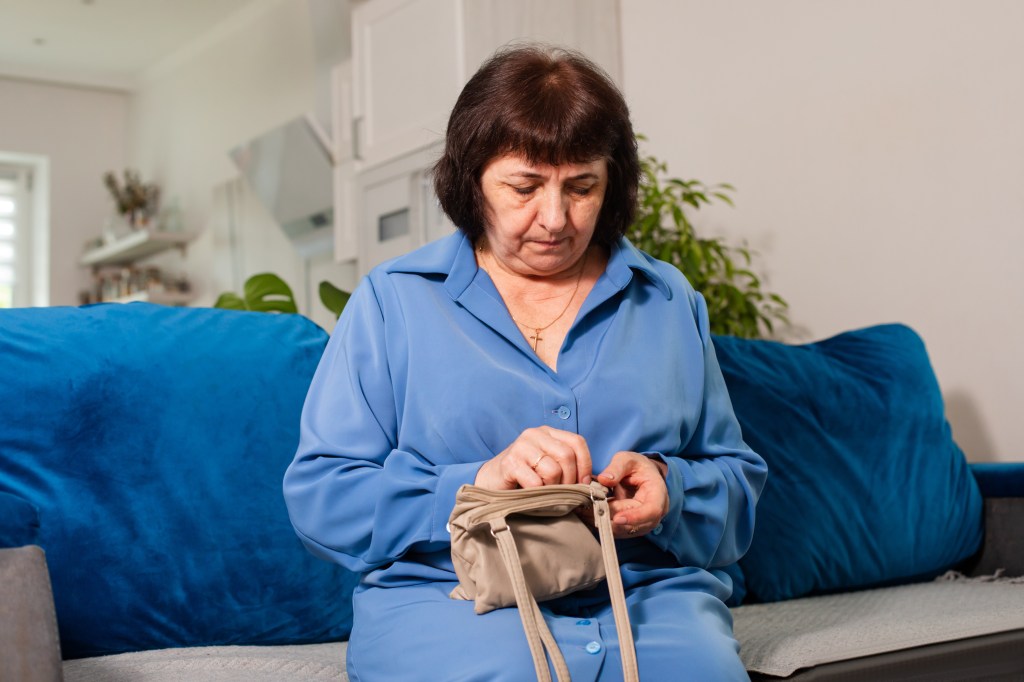Grandma is usually a safe space for the grandkids — but a hidden danger lurking in her purse could land them in the hospital.
“Grandma’s bag syndrome” is responsible for up to one-fifth of accidental child poisonings, and a pediatric emergency physician is warning people how to keep their children safe this holiday season and year-round.
And to be clear, Grandpa should be on the lookout, too.

Dr. Meghan Martin (@Beachgem10) shared her timely warning on TikTok, alerting parents and grandparents to an often-overlooked danger to little ones.
“If you’re spending time with your family for the holidays, it’s important to know about something called ‘granny syndrome’ or ‘granny bag syndrome,'” she said.
“This is when young children get their grandparents’ medicines that are not properly covered – for many reasons. One of them is that grandparents are not used to having children around. Often their medications are on low shelves or in their bags or in child-resistant medicine containers.”
If this sounds like a rare problem, think again: 10% to 20% of accidental poisonings in children are caused by their grandparents’ medications, according to a 2006 study published in the Journal of Osteopathic Medicine.
The researchers, who operate at the Long Island Regional Poison and Drug Information Center, analyzed phone calls to poison control centers for children ages 6 and younger. They found that many of the incidents involved containers that were not child-resistant and were placed in pocket books or on tables, desks and low shelves.
The average age of the poisoned child was one and a half years, and most were treated with pain relievers, heart medications, and psychotropic medications.
“Some of these drugs can be really dangerous,” Martin said. “They could be pain pills, antidepressants, heart medications, blood pressure medications, or diabetes medications.”
While grandma and grandpa can take two pills and it’s no problem, children’s bodies are significantly smaller, so the dose has a much bigger impact – and one pill can be toxic.

In one case study cited by Winthrop University Hospital researchers, a grandmother had come to bake cookies with her 3-year-old grandson and left her purse on the couch “for a moment.”
As her head was turned, he reached into the bag and started playing with her pills – telling her, “M&Ms, nana,” when she turned around.
She was taking an ACE inhibitor (which treats high blood pressure and heart failure), a diuretic, a sulfonamide (and antibiotics), and a beta-blocker, and he was given activated charcoal at the hospital to combat possible poisoning because they didn’t do that. I know how much he had swallowed.
On TikTok, Martin is warning people to make sure medications are locked up if they’re visiting family — and if family is visiting them, not to keep medications in their purses or suitcases.
She also recommends that adults not take drugs in front of children because they will want to imitate what adults do, and cheekily referring to drugs as “candy” is even more likely to encourage those children to dig for it.
#Beware #granny #bag #syndrome #poison #children
Image Source : nypost.com